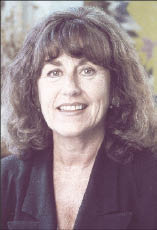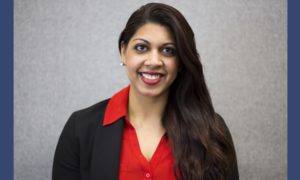 |
|
Bernardine Dohrn |
Before the MacArthur Foundation sent her around the country to find the best juvenile courts, before she represented abused children in lawsuits, and before she founded the Children and Family Justice Center at Northwestern University, Bernardine Dohrn appeared on the FBI’s Ten Most Wanted list.
Dohrn was the public face of the Weathermen, the radical anti-war group that in the early 1970s carried out bombings at corporate and government buildings – including banks, the U.S. Capitol, the Pentagon and the State Department. FBI Director J. Edgar Hoover called her “the most dangerous woman in America.”
For much of the past 30 years, however, Dohrn worked largely out of the public spotlight – until last fall, when Republican vice presidential candidate Sarah Palin accused Barack Obama of “palling” around with “terrorists who would target their own country.” She was referring to Obama’s relationship with William Ayers, another former member of the Weathermen and Dohrn’s husband.
Back in 1995, Ayers and Dohrn hosted Obama’s political debut in their living room, where he launched his bid for the Illinois State Senate. For years, the two families were neighbors in Chicago’s Hyde Park, and Obama and Ayers, a professor of education at the University of Illinois-Chicago, served together on a foundation board.
How did Dohrn, who in 1970 joined a “Declaration of a State of War” against the United States, end up working within government systems to help youth? In several interviews over recent months, Dohrn talked about how she got there.
“The themes that have driven and animated me are the same. Obviously, the context and the strategies are quite different,” says Dohrn, an associate professor at Northwestern University’s School of Law. Her biography and résumé on the law school’s website don’t mention her past with the Weather Underground, as the group became known after its members went into hiding, in the lengthy list of her scholarly publications and lectures.
“The only part of the Weather Underground/fugitive experience I draw on is the notion of being a caricature, a cipher, demonized, unrecognized in the public discourse about you,” she says. “Today, so many millions of young kids are driven into the juvenile justice system under a stereotype of who they are.”
Radical Years
Dohrn’s career path seemed routine when she earned a law degree from the University of Chicago in 1967. But she never took the bar exam; she became an organizer for the National Lawyers Guild and says she “got swept away by the [anti-war] movement.”
She joined Students for a Democratic Society, but she and others – frustrated by what they saw as a lack of impact – split to form the more radical group known initially as Weatherman. The group took its name from the lyrics of a Bob Dylan song, Subterranean Homesick Blues: “You don’t need a weatherman to know which way the wind blows.”
The infamous Weatherman bombings led to criminal charges against Dohrn, Ayers and other members. She spent 11 years as a fugitive, hiding in San Francisco and Chicago.
In 1980, Dohrn and Ayers, who by then had two children, turned themselves in. Charges against Dohrn were dropped because of the FBI’s mishandling of her case. She paid a $1,500 fine for a minor bail-jumping charge, and later served seven months behind bars for refusing to cooperate with a grand jury probe of a 1982 armored car robbery by former Weather Underground members that resulted in the deaths of a Brinks guard and two policemen.
She eventually passed the bar exam but was denied admission in New York. Through an Ayers family connection, she was hired by the prestigious Chicago law firm Sidley Austin, working on a large bankruptcy case and on pro bono projects, primarily involving women prisoners.
“I was trying to figure out what was next,” she says. “I had three little kids, one with a lot of troubles at the time. Bill was a teacher. I wanted to do something with law but something that impacted everyone’s life.
“I really somewhat arbitrarily decided to investigate children’s law and children’s rights.”
Youth Work
In 1988, she began a series of assignments involving disadvantaged youth: at the Cook County Public Guardian’s office in Chicago, where she worked for nearly two years on lawsuits on behalf of abused children; at the American Civil Liberties Union, working on a project that led to a class action lawsuit against the Illinois Department of Children and Family Services; on a Legal Assistance Foundation project, which won a case ensuring the right of homeless children to attend school; and, with a John D. and Catherine T. MacArthur Foundation grant, traveling to 20 juvenile courts to identify the best. (She says they were in Louisville, Ky.; San Jose, Calif.; and Hawaii).
She was especially motivated by conditions in Cook County juvenile court. “I thought we should establish a center focused on reform of the world’s first juvenile court … and we should be there every day, representing kids,” Dohrn says.
Through a colleague, she met the director of the Northwestern legal clinic, which had two young lawyers working on children’s rights. He endorsed Dohrn’s idea to create the Children and Family Justice Center at Northwestern.
Dohrn does not practice law. She began at Northwestern as an adjunct professor in 1991, and established the center the next year. The center – with six lawyers, 50 law students, and half a dozen social work students – represents children in school expulsions, juvenile court, immigration, and abuse and neglect cases. It also files amicus and appellate briefs and “small-level” class action suits.
The center was one of the parties in a court case that led to the 2005 U.S. Supreme Court ruling that the death penalty for juveniles is unconstitutional. Dohrn has also been working to abolish life sentences without parole for juvenile offenders.
“Bernardine is … very strategic and very savvy about working with people inside and outside government to improve public systems for children and youth,” says Robert Schwartz, executive director of Philadelphia’s Juvenile Law Center, a nonprofit, public interest law firm. Schwartz evaluated the center in the 1990s for the MacArthur Foundation and found it “very effective.”
Chicago-based MacArthur is the center’s largest funder, providing $6 million in support over the past 18 years. Others have included the Soros foundation network and Open Society Institute, the Annie E. Casey Foundation and the JEHT Foundation. Northwestern pays staff salaries and houses the center for free, Dohrn says. She says the center has a $1 million annual budget.
Have the years changed her? “I’m slightly more mellow,” she says. “I have a longer view.”
One friend, University of Illinois-Chicago historian Barbara Ransby, calls Dohrn “the most youthful 67-year old I know. …. We always think of older people as set in their ways, closed, and she’s really the antithesis of that.”
The past keeps intruding. Two months ago, officials of a San Francisco police union, joining with a right-wing group opposed to the United Nations, demanded that Dohrn and her husband be prosecuted for what the group claims was the couple’s role in a 1970 bombing that killed a police officer. The crime remains unsolved.
“I – we – had nothing to do with it,” Dohrn says. “We did not kill anybody.”
When the allegations surfaced, Dohrn was in Malawi with three of her law students helping in the legal defense of five young murder defendants. The allegations received some coverage back home. “It wasn’t big news in Malawi,” she said.































